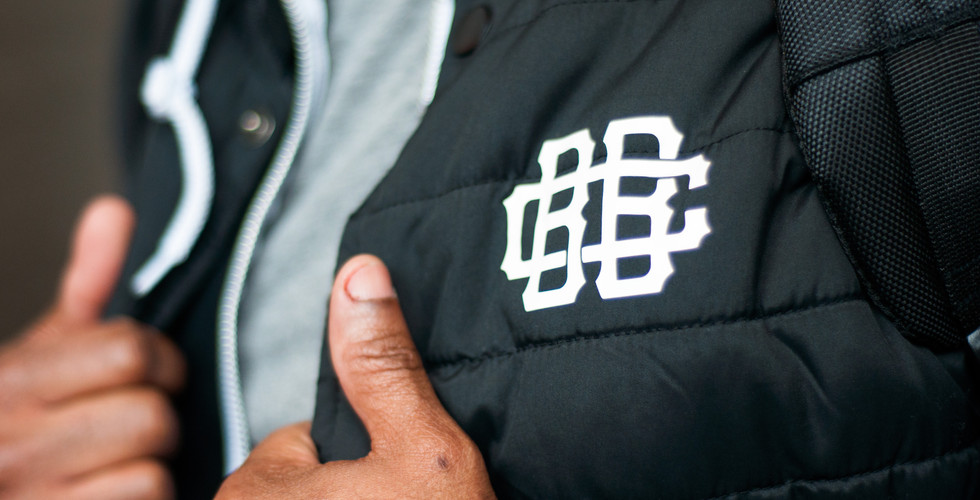FreshFest 2018: Where Craft Beer Culture Meets Black Culture
- Apr 2, 2018
- 5 min read
Over the years, the craft beer industry has grown exponentially. Five years ago, half of the local breweries we have in this city today were still in the home-brewing stage. Now, seeking out craft breweries and spending weekend evenings at their favorites is a beloved past time of Pittsburgh’s millennial generation. The one problem that goes frequently unnoticed by most craft beer fans? Everybody is white.

Now of course, this isn’t a bad thing. The bad thing is, a predominantly white community in a billion dollar industry tends to make people of color who share the same interests hesitant to participate, uncomfortable knowing their lacking representation in spaces like breweries and craft beer events. As a white person, my knowledge of this issue was nonexistent, and I was grateful to have met two Pittsburgh natives who not only could teach me about this topic, but who are also dedicated to giving people of color representation and comfort in this industry. Meet Day Bracey, ½ of the Drinking Partners podcast, and Mike Potter, founder of Black Brew Culture magazine.
Black Brew Culture is a national online publication featuring people of color involved in the beer industry from all over the country, whether it’s a brewer, a connoisseur, a hobbyist, what have you, and is set up to give those people a spotlight. “We center on high end images and in-depth stories that put people on the level of some of the other big name magazines,” Mike explained, noting that the industry here in Pittsburgh isn’t quite as big or developed for it to have focused strictly local. If somebody needs to connect the dots or help a brewer find another brewer, or any other person of color in the industry, they are the first to be called. “We have also created a lifestyle brand where we do events like FreshFest, or tasting parties, and we have merch centered around that.”
I first found out about Black Brew Culture, known in short as BBC, when a group of gentlemen came to my work to say hello to my boss. Decked out in BBC merch and talking about the Ace Hotel beer event they had just attended, I was curious to find out what BBC was all about. They turned me onto Mike, who was excited to sit down with me and discuss what BBC was, as well as what they are doing by teaming up with Day and Drinking Partners.
Drinking Partners is a comedy podcast started by Day and his friend Ed Bailey, two standup comedians looking for a new outlet for their craft. Day has a strong interest in craft beer and wanted to include that in the podcast, making it all about comedy and beer culture and how they intersect. The duo also throws events around the city, their first ever having taken place at Full Pint’s brewery and bar in Lawrenceville. The events are meant for everybody to attend, and for everybody to feel comfortable. “Intersectionality matters…. representation matters,” Day said. The podcast began featuring different artists and notable people, and in September of 2017, Day and Ed brought Mike onto the show to talk about BBC and bringing their two circles of the beer community together. A few months later in January of this year, Day and Mike reconnected and began discussing different projects they could collaborate on to help the community. One big idea was born out of that: FreshFest 2018, happening August 11th at the Threadbare Cider House in the North Side. The two knew they would be a good pair for events like FreshFest because of their shared passion, with Day saying, “We both have that shared drive to get people outside of their comfort zones, but also to make those places that are uncomfortable for them, comfortable.”
FreshFest will be an event that brings in black brewers from around the country, as well as local brewers (who are all white) who are pairing with black entities, i.e. entrepreneurs, politicians, venues, and artists, to collaborate on beers to present at the festival. There will be food trucks, entertainment, a VIP access section, at the Wigle Whiskey Barrel House down the street for people to check out as well. “The Meet the Brewers VIP is a chance for people to talk first-hand with some of the industry people they’ve followed and look up to for inspiration.” Expecting an attendance of about 500 to 700 people, Day explained that their ultimate goal is to “start that conversation with the beer community and the black community on how we can be more included. Part of that is representation: bringing in black brewers who are successful, and also starting a local dialogue with the local brewers on how we can be of help.” He highlighted that he understands the need for representation is not an intentional issue, and they want to be the ones to fill that gap. “There are a lot of breweries who are well-intentioned and want to be inclusive, but they’re spending most of their time figuring out how to sell a bottle. It’s not on their forefront, and it takes a little extra effort; we have that ability and have those connections, we are like that bridge.”
Both Day and Mike explained what it’s like to be so interested in a billion-dollar industry that doesn’t feel like it’s giving back or thinking about their African-American audience. “As of now, you’re in Pittsburgh, you’re drinking beer, and it’s likely 0% of your dollars are going to somebody that looks like you or is in your neighborhood,” Day said. Mike followed, noting, “[It doesn’t seem like they have] your interests in their thought processes at all. Access and equity are the two major issues we focus on.” So not only are they hoping with FreshFest to break black folks into the industry, they are specifically hoping to help black home brewers get the ball rolling on their own breweries. “I know of two people that are going to benefit from it tremendously, both being home-brewers who are trying to break into the business and collaborate with other breweries to get the feel of what it’s actually like behind the scenes on a bigger scale,” Mike said. The importance of black brewers in black communities stretches farther than just the success of those brewers. Day explained:
You look at say a Troeg’s or Brew Gentlemen or Voodoo that started in these areas that don’t have a lot of growth around them, and then stuff starts to grow around them. So if you put a black brewery in a black neighborhood, the thought is it’ll be owned and operated by black people, frequented by black people, and then there will be black growth that will sprout up around them as well.
These two natives are prepared to change the craft industry game and bring in a whole fan base that, without their influence, probably wouldn’t participate in the culture of the craft beer industry. The most important thing to note from their stories is that Black Brew Culture, Drinking Partners, and FreshFest are all-inclusive and look for the support of their white counterparts to embrace the people of color in the community. So be sure to take a listen to the podcast, check out the publication online to find your new favorite beer by a black brewer, and cop those tickets to FreshFest 2018 in April. I’ll be there, sporting the awesome BBC tee shirt that Mike gifted to me after our interview, most likely carrying around my BBC logo-etched glass looking for constant refills. Hope to see you all around the awesome events these guys throw and make sure to say hello to them if you see them!
Check out some more photos below, and follow Black Brew Culture on Instagram @blackbrewculture and Drinking Partners @partnerspod!
All Pictures by Nicolette Kalafatis















Comments